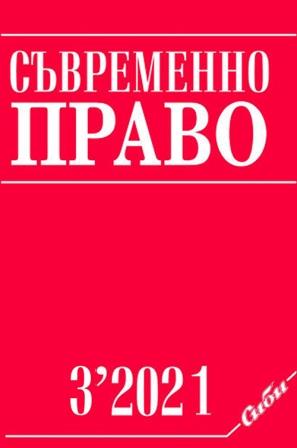Отговорността за нарушения на права на интелектуална собственост не е проява на общия принцип на непозволеното увреждане по чл. 45 ЗЗД
The Liability for Violations of Intellectual Property Rights is not a Manifestation of the General Principle of Tort under Art. 45 LOC
Author(s): Petar PetrovSubject(s): Law, Constitution, Jurisprudence, Civil Law
Published by: Софийски университет »Св. Климент Охридски«
Keywords: intellectual property; liability in tort; fault; strict liability; copyright
Summary/Abstract: In this article, the author casts doubt on the assertion, which is dominant in Bulgarian science, that the claim for damages from a violation of intellectual property rights should be regarded as an application of the general principle of Art. 45 of the Law on Obligations and Contracts and that the said claim contains all the elements of liability for tort, including fault, in particular. An attempt is made at substantiating the view according to which the liability for a violation of intellectual property rights is one of a special status, which is fully completed in the specific laws, one of the particularities of this status being that fault does not form grounds for the liability but is relevant to the determination of the compensation due. In this respect, the affirmation that is called into question and was initially formulated in the mid 60s of the previous century is put under discussion. An examination is conducted of the relevant provisions of the operative legislation, and the extremely inconsistent court practice in this field is also dealt with. An analysis is made of the disputed affirmation in a historical context – first, as at the time of its formulation and, second, in the currently operative social and legal reality. As a consequence thereof, the arguments supporting the dominant scientific assertion have been disproved, and arguments are adduced according to which the criticized affirmation is untrue, and the assertion supported by the author is backed up by respective considerations. In conclusion, attention is drawn to the importance of the supported affirmation in both theoretical and practical aspects.
Journal: Съвременно право
- Issue Year: 2021
- Issue No: 3
- Page Range: 7-33
- Page Count: 27
- Language: Bulgarian
- Content File-PDF

